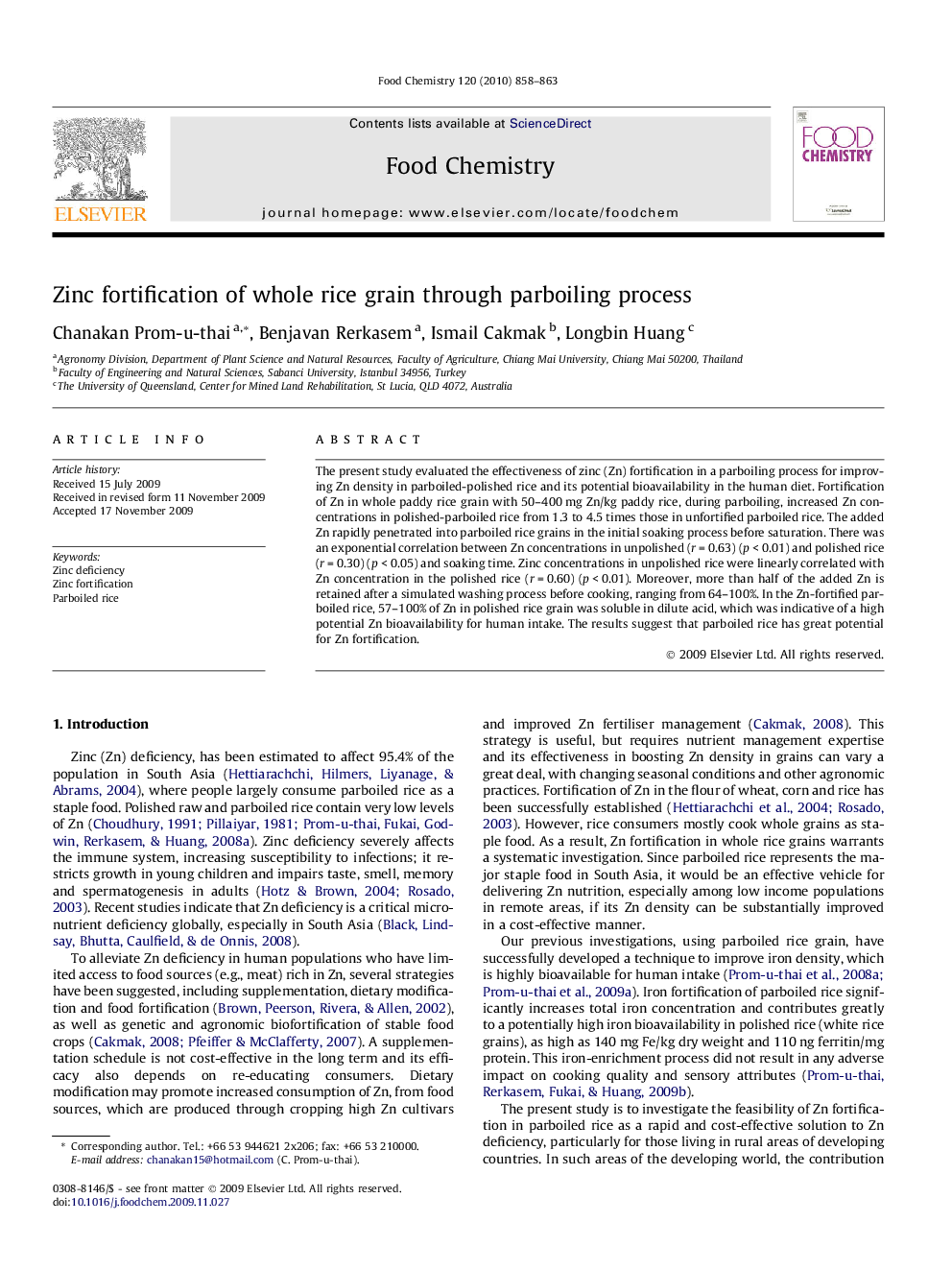| Article ID | Journal | Published Year | Pages | File Type |
|---|---|---|---|---|
| 1190679 | Food Chemistry | 2010 | 6 Pages |
The present study evaluated the effectiveness of zinc (Zn) fortification in a parboiling process for improving Zn density in parboiled-polished rice and its potential bioavailability in the human diet. Fortification of Zn in whole paddy rice grain with 50–400 mg Zn/kg paddy rice, during parboiling, increased Zn concentrations in polished-parboiled rice from 1.3 to 4.5 times those in unfortified parboiled rice. The added Zn rapidly penetrated into parboiled rice grains in the initial soaking process before saturation. There was an exponential correlation between Zn concentrations in unpolished (r = 0.63) (p < 0.01) and polished rice (r = 0.30) (p < 0.05) and soaking time. Zinc concentrations in unpolished rice were linearly correlated with Zn concentration in the polished rice (r = 0.60) (p < 0.01). Moreover, more than half of the added Zn is retained after a simulated washing process before cooking, ranging from 64–100%. In the Zn-fortified parboiled rice, 57–100% of Zn in polished rice grain was soluble in dilute acid, which was indicative of a high potential Zn bioavailability for human intake. The results suggest that parboiled rice has great potential for Zn fortification.
